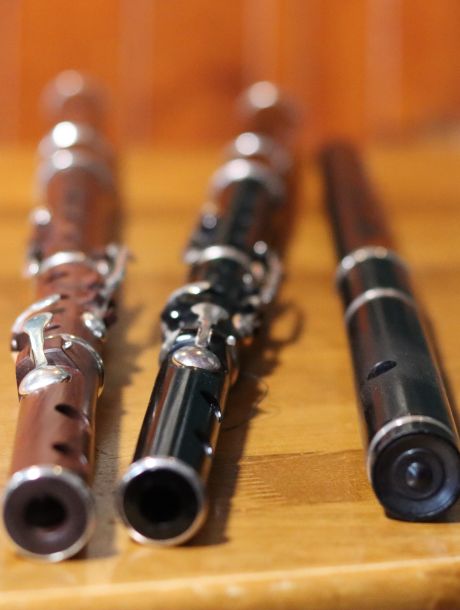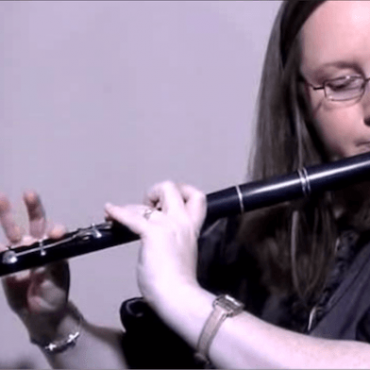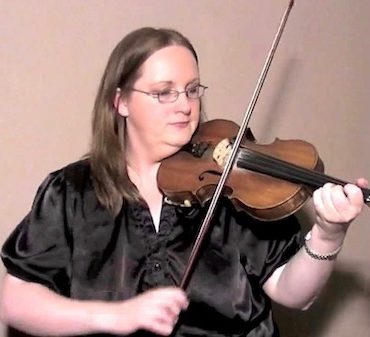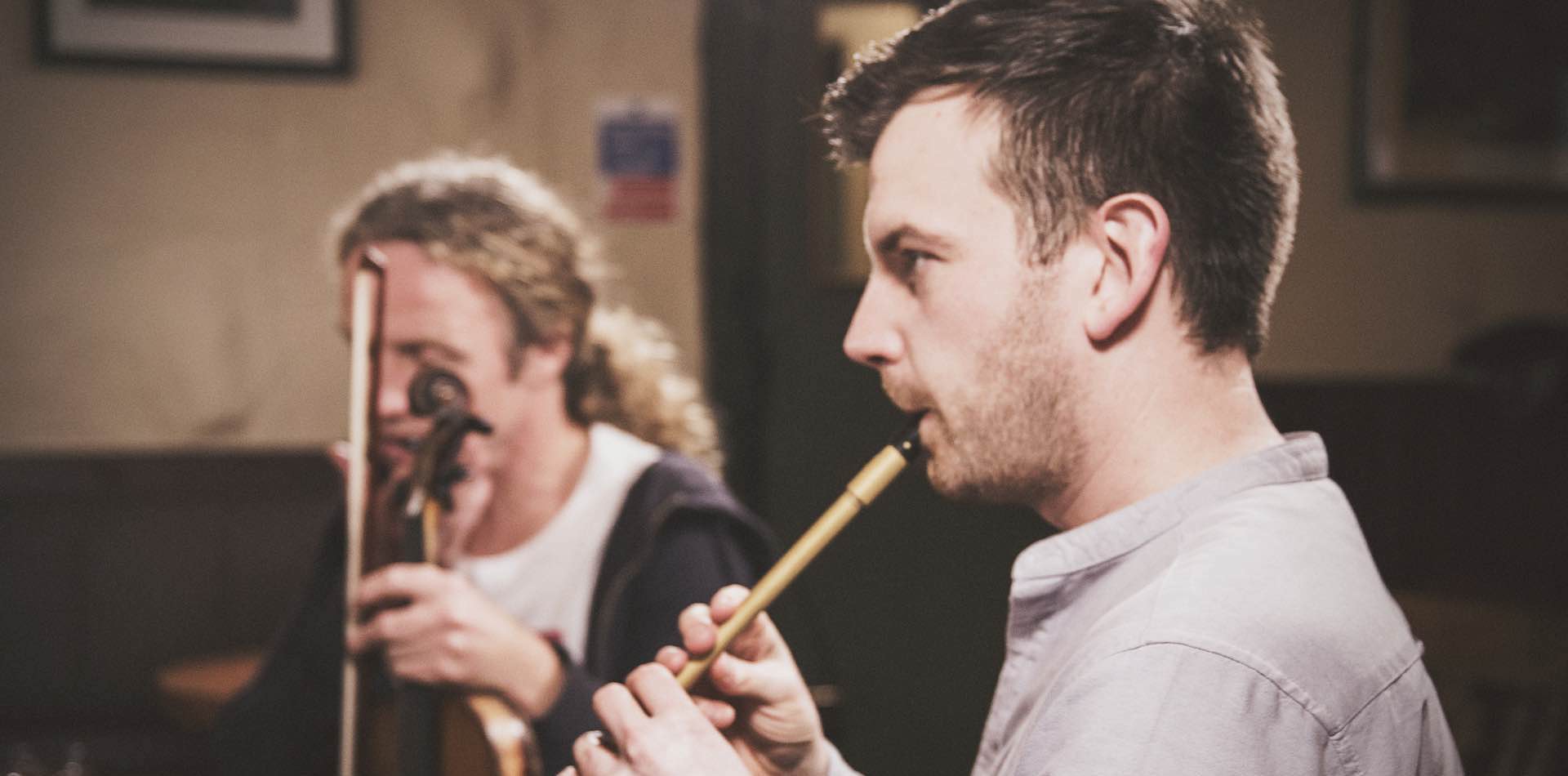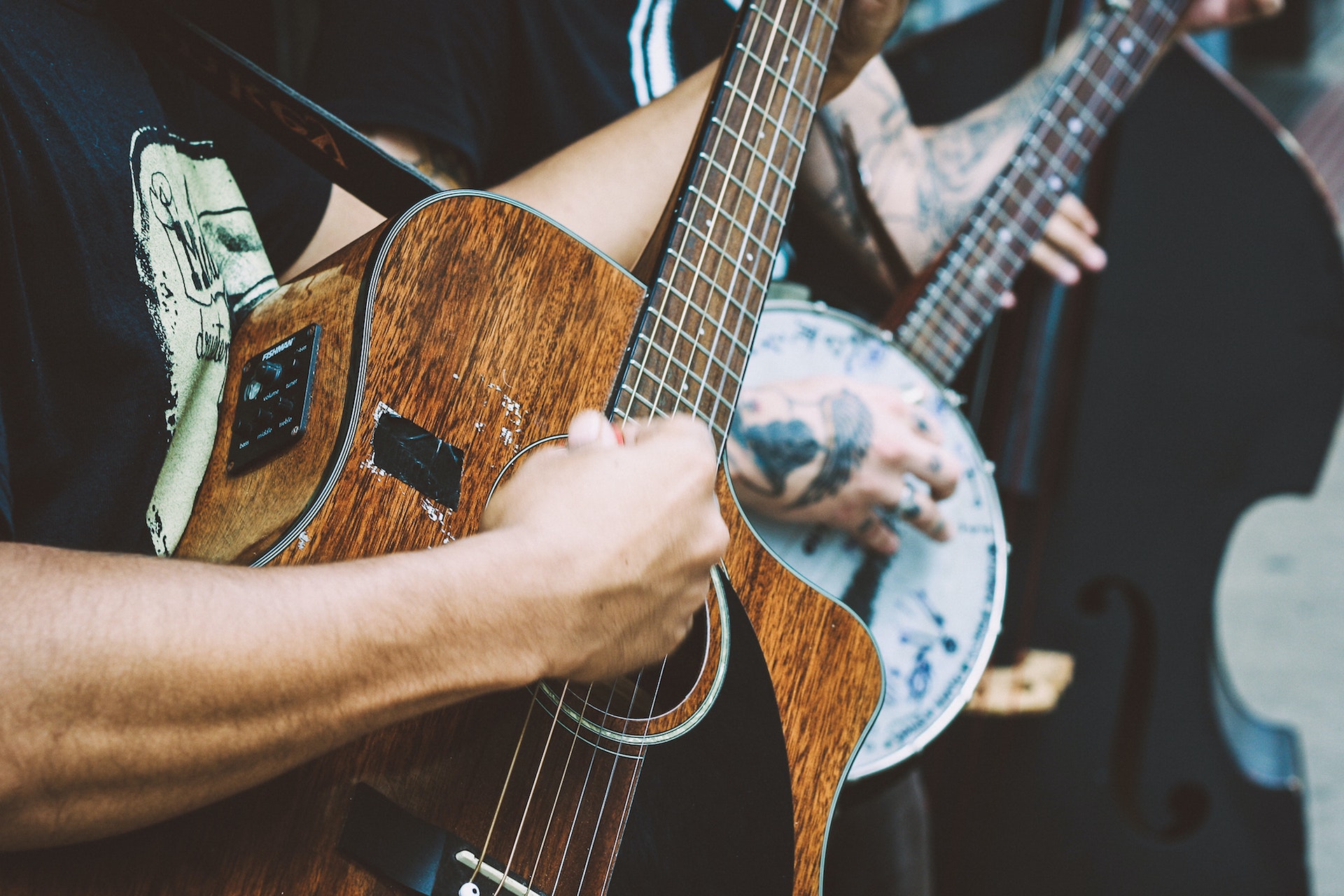You are an accomplished musician on flute, fiddle and tin whistle. How did you start playing each instrument?
Well, I started playing the whistle like most of the people in this country, at school. I then joined the local Comhaltas branch in Corcaghan Co. Monaghan and joined a beginners whistle group there. My Dad always wanted to play the fiddle himself but never got the chance to, so when I was competing in a Feis one weekend he bought a 3/4 size fiddle from another parent there and that was the start of my fiddle journey. With regards to the flute another member of the branch had a spare flute and asked me if I wanted to try it and that was me hooked!

Majella Bartley
Was there much music in your hometown in Co. Monaghan when you were growing up? Were you born in a musical family?
We had a lot of strong Comhaltas branches in Co. Monaghan which included my own, Corcaghan. Without the branch I certainy wound not be paying today. I was very lucky to grow up amongest great musicians and close friends. My father and mother never played music but there was some music on my Dad’s side of the family. Unfortunately, I never got the chance to meet them.
What are the recordings and musicians that influenced you the most as a traditional musician?

Recordings of Barney McKenna, Michael Coleman, Josie McDermot and John McKenna were played a lot at home when I was growing up. Later I started listening to Matt Molloy, the Bothy Band, Tommy Peoples, Frankie Gavin, Mary Bergin and Carmel Gunning. They certainy had an influence on my playing. My mentor however was Eamon Curran, Eamon is a piper from Fermanagh living in Monaghan, He starting teaching me from the age of 10 and certainly stirred the ship in the right direction. Eamon’s music is so grounded in tradition and he plays with such passion you could listen to him from morning to night. I was one of the lucky people who got to learn from Eamon and I never would have achieved what I have without him.
"There are many different views of slow air playing and the beauty about our tradition is that we can all form opinions, there is no right or wrong just what we are passionate about."
Majella Bartley
You won the All-Ireland senior title on flute in 1996 and the slow air competition on tin whistle in 1997. Could you tell us about your experience of competitions as a participant?
Playing at the fleadhanna (plural for fleadhs) was a mixed bag of experiences. I started competing at the local county Fleadh when I was 9 or 10. When I was young I loved meeting my friends getting up to play for people especially in duet, trio and band competitions. I started to quailfy for the All-Ireland at age 11. The highlight of going to the All-Ireland was the workshops during the week Scoil Éigse. That was when you met up with your friends from all over Ireland. A lot of them would have been competing too, but we always had a healthy attitude towards the competitions and we always backed and congratulated each other. I was very lucky to be in a branch that had ceili bands that competed every year. I loved group playing and it always added to our musical abiity. Winning in duet, trios and ceili bands was just as important as the solo competitions. Competitions were a great focus for me and kept me sharp and motivated.
You have also been adjudicating regularly at Fleadh competitions. How difficult is it to evaluate the competitors, especially at senior level?
An adjudicators job is not an easy one. You have to adjudicate a person on how they played on the day. Nerves can certainly take over. What’s important is the foundation of the tunes which is the rhythm, emphasis and heart. Then the technique and ornamentation builds the walls with definition, drive, variation and individuality adding the roof. Consistency throughout all tunes is also important especially in Seniors with the addition of the Slow Air. Research and work on a Slow Air is vital.

Majella with fellow OAIM tutor Thomas Johnston playing for TG4 programme Geantraí in 2011
Comhaltas is an organization with which you have worked a lot over the years. What does it represent for you?
Comhaltas has been always been my musical life. Without them I would not be playing music today. Comhaltas rebuilt our art form when it was nearly gone and now Comhaltas has over 400 branches worldwide. I am delgihted to have the opportunity to sit on the national executive to help the education and development of our culture. The one thing for me that sets Comhaltas aside from any other organisation is the connection to community and the family you make. I have a huge Comhaltas family who are there for me through thick and thin and that is hard to fine. We are not perfect, we are trying our best, but the giving back for me is so important.
Teaching seems to be an essential part of your career as a musician. Was it something you always aspired to?
Yes, I started teaching when I was 16. I started off with just 2 students and by the time I was 18 I had approximately 25-30 students that I taught over a weekend. I actually taught my way though college. I started teaching in my local Comhaltas branch and that gave me a lot of group experience. I did the teaching diploma that Comhaltas provides called the TTCT when I was 18 and this inspired and made me look into my teaching and to work on how to transmit my music to others. I have never stopped teaching since I was 16 and I gain so much knowledge still from every new student I get. It is a passion and one that I hope will stay with me for many years to come.
You obviously teach with us here at OAIM, but also in different settings in person such as the Irish World Academy at the University of Limerick. Could you tell us a little bit about the Irish World Academy?
The Irish World Academy is another home to me. When I came to the University of Limerick in 2001 to do my Masters I never expected to be drawn in so much. I came down to have a break from work and college and just to play for the year and I never left. Again there was this sense of family within the staff and students. Working in the Academy is a privilege and meeting amazing musicians everyday. Both Niall Keegan and Sandra Joyce go above and beyond to help everyone. As some students have said to me it’s like a Fleadh everyday. Niall also challenged me as a musician and openned my eyes to new possibilities and approaches to flute playing, and that is what it is all about. We have to be aware of our potential and to push ourselves everyday. As Niall always said with regards to all aspects of the flute: try and master everything and then choose what you want to do.
How do you find a balance between teaching and performing or playing for fun? What is your favourite setting to play music?
It is very hard to find a balance especially when you teach as much as I do. It is certainly hard to find the time to play for fun. My favourite setting is of course the session, you meet friends and there is no judgement, there is just music.
You have a lot of experience in playing slow airs. Have they got a special place in the Irish traditional music repertoire?
I love slow airs. This comes from listening to singers when I was young. I love the stories and melodies. When I play a slow air I am telling the story of the song, which is so important and to capture the expression and feeling is extremely important for me. Yes, slow airs do have a special place in our repertoire, the songs speak of our history and our culture and keeping them alive contributes to the preservation of that culture. There are many different views of slow air playing and the beauty about our tradition is that we can all form opinions, there is no right or wrong just what we are passionate about.
Could you share some tips about how to learn slow airs?
Firstly you pick a version of a song and stick with that. Just as we would play a jig or a reel there are many versions, this is the same with singers. Pick the song and singer and work from there. I would always suggest to learn a couple verses of the song so you can sing with it in your head as you play it. Listen to the ornamentation, phrasing and variation that the singer uses and try to recreate this in your own playing. If you know the song you can develop your own interpretation and make it your own while keeping the integrity of the song.
You recorded two courses with us specifically about tunes for Fleadh competitions on fiddle and flute. What are the elements to keep in mind when selecting a tune to play at a competition?
Just keep in mind what is comfortable for you. If you pick a tune that has 4 parts and you are finding it difficult in terms of breathing, ornamentation, variation etc., then pick something less challenging. More is not always better. You should not be worrying about a part in a tune that you think might go wrong or something that trips you up at times, you should have confidence in your tunes and your ability to play and if you do, this will come across in your playing and will showcase your talent more.




